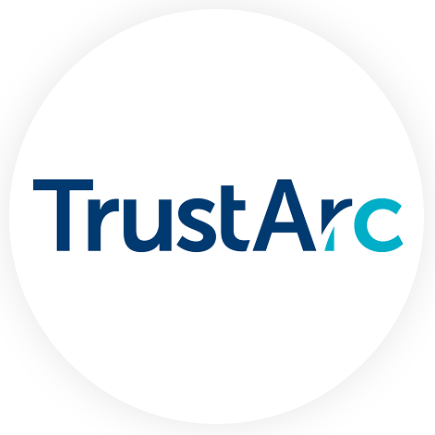When did you last change your online passwords? Do you feel confident that they can keep hackers out of your most sensitive accounts? This tactic is crucial for preventing cyber identity theft — a huge problem among individuals and small businesses alike. Unfortunately, data from Avast reveals that 83% of Americans rely on weak passwords.
A variety of password strategies are problematic. If you’re like most users, you’re content to stick with multiple ill-advised password habits simply because they’re convenient. Perhaps you opt for simple words or phrases. Or maybe you use the same password for several online accounts. These and other practices leave your data alarmingly vulnerable. That’s why it’s time to clean up your passwords and achieve the thorough protection you require, given the realities of today’s risk-filled digital environment!
Not sure how to choose a strong password? This process only takes a few moments, but it holds great implications for your digital future. Achieve peace of mind by giving these password security best practices a try:
Skip Common Passwords
With so many considerations to keep in mind, choosing a password can feel overwhelming. Often, however, the best fixes are the most simple. To begin: avoid the most common passwords. Hackers often turn to these first when attempting brute force attacks.
Passwords worth skipping include:
- Password
- 123456
- 111111
- 123123
- Qwerty
- Abc123
- Iloveyou
- Letmein
Avoid Personal Details
Yes, personal details such as birthdays, anniversaries, or pet names are easier to remember. Unfortunately, they also make your password far easier for malicious parties to crack. This is true even when your passwords contain details that might not seem obvious. After all, many hackers conduct thorough research on social media and elsewhere in hopes of finding clues.
According to the Avast survey referenced above, problematic details frequently featured in passwords include the following:
- Names of loved ones
- Words related to hobbies
- Favorite celebrities
- Names of favorite movies, TV shows, or books
- Portions of home addresses or phone numbers
Create a Long String of Characters
The longer your password, the better. It should consist of at least ten characters, including, ideally, numbers as well as uppercase and lowercase letters. Depending on the account, you may also be able to add special characters to the mix. These should be placed in a random order rather than starting with letters and ending with numbers.
Opt for Multi-Factor Authentication
Multi-factor authentication builds additional steps into the process of accessing your account. Yes, this takes longer than simply typing in a password, but it also locks out hackers if your password is ultimately discovered.
Many forms of multi-factor authentication are available. Processes involving text or email messages are common, but biometric solutions are beginning to become more prevalent. Depending on the system, biometric multi-factor authentication could incorporate voice, facial recognition, or fingerprints.
Don’t Recycle Passwords
After you’ve put the hard work into developing an original, lengthy password free of personal details, you may be tempted to recycle this specific string of characters for other sites. Unfortunately, by doing so, you make yourself far more vulnerable in the event of an attack. With one password for multiple accounts, you increase the potential for access across the board if a particular password is hacked. Instead, commit to coming up with a new password every time you open a new account online.
Use a Password Manager
It’s common knowledge that reused passwords should be avoided, and yet, many people stick with this problematic practice. Avast’s survey reveals that over half of the people who reuse passwords, 88% know they shouldn’t. When asked why they continue with this dangerous habit, 54% reference the struggle to keep so many passwords straight. Thankfully, an excellent solution exists: the trusty password manager. Equipped with this helpful tool, you no longer need to shoulder the burden of remembering dozens of complex passwords.
Your password manager can help you generate passwords that are unlikely to be cracked. Just as important, this service can manage vast collections of passwords, so you don’t feel compelled to recycle account details.
Choose your password manager carefully. Not all options are free of charge, but that doesn’t mean that you need to pay crazy rates for the sake of password security. However, keep in mind that the added features provided with paid password management services can be valuable. Many add secure file storage or even proactive solutions for checking passwords against leaks.
If you’re not happy with your initial choice, don’t worry. Most password managers allow you to export your data to other services, so you can continue to use expertly generated passwords for all of your accounts.
Regardless of which service you select, you’ll need to take extra care when choosing your master password. This may be unrecoverable if you lose it, so you’ll need to walk the tough line between making it complex enough to keep hackers out but memorable enough that you can access your account.
Improve Data Privacy and Security With Help from NerdsToGo
At NerdsToGo, we understand the many elements that come together to form a safe and secure digital presence. We also realize how difficult it can be for the average user or small business to implement these best practices. To address this problem, we provide various data backup and cybersecurity services designed to address common vulnerabilities.
Whether you’re interested in using a personal password manager or would like to develop a strict password policy as part of your security template, we can help. In the worst-case scenario, we’ll be there to assist with data recovery and other mitigation services.
Contact us today to learn more about our approach to residential and small business cybersecurity!



